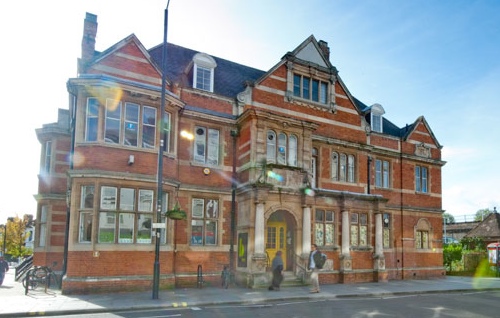
Once again, arts funding is in the news, as Culture Secretary Jeremy Hunt announces an £80 million ‘match fund’ scheme to encourage private philanthropy across the arts.
But beneath all the jargon, what does this actually mean for an arts sector still reeling from recent cuts?
The breakdown of the match fund includes £50 million from Arts Council England, the national development agency for the arts who invest public money from the government and the National Lottery, and £30 million from the Department of Culture, Media and Sport.
It is thought that Hunt’s ‘match fund’ will work in three ways. It will help arts organisations to establish endowments; it will match private donations and monies raised through fundraising efforts with public money, and it will offer specific help to small arts organisations who often lack the capacity and manpower to employ fundraisers. Hunt hoped that this would mark a major change in the way that the arts in the UK are funded. Essentially, the aim is to combine USA-style private support with public finance. The announcement was part of a ten-point plan to increase philanthropy in the arts.
In this ten-point plan, running themes were the increase of fundraising capacity, the recognition of donors and plans for sharing best fundraising practice among arts organisations. Other points included naming 2011 ‘The Year of Corporate Giving,’ the promise of a government review into the subject, plans to increase international giving, encouraging more investment by business and the intention to make it the norm for people to leave up to 10% of their estate in their wills to charity.
Hunt was keen to stress that an increase in private finance would not mean a decrease in public funding. “Philanthropy is not about replacing state funding with private support,” he said. “Even though the very nature of philanthropy puts the onus on the private sector, the government is not prepared to just sit back and do nothing to make it happen. Instead we will play an active role in making sure that our sector can get the very most from the resources that are out there. But above all we are targeting a horizon shift: a generational change in the culture of giving that may be 10 or 20 years in the making.”
 There are other notable issues here too, not least the question of whether he who pays the piper can call the tune. Josie Rourke (pictured), Artistic Director of The Bush theatre, has voiced concern that the climate of cautious conservatism which exists in the arts in the USA may make its way here, making theatres nervous of losing funding from its key donors if the art they are producing is deemed questionable by those funding it. Could, for example, a philanthropist withdraw funding if they disliked the theme or content of a play?
There are other notable issues here too, not least the question of whether he who pays the piper can call the tune. Josie Rourke (pictured), Artistic Director of The Bush theatre, has voiced concern that the climate of cautious conservatism which exists in the arts in the USA may make its way here, making theatres nervous of losing funding from its key donors if the art they are producing is deemed questionable by those funding it. Could, for example, a philanthropist withdraw funding if they disliked the theme or content of a play?
What was lacking from the speech was any indication that the Conservative majority government would make good on its arts manifesto promises of significant reform of the tax system to encourage giving to arts organisations and despite the announcement on Wednesday 8th December, there was still some confusion over who would control the DCMS money and when it would be available. Chief arts writer Charlotte Higgis, for The Guardian, reported that when she questioned the DCMS they said that Arts Council England would be responsible, but a spokesperson for ACE seemed less certain. Hunt said the money would be available from 2011, Culture Minister Ed Vaizey said 2013.
When they have sorted out the minor problems of when and who, perhaps this announcement may transform the way the arts are funded in the UK. Or, less optimistically, it may turn out to be a case of the Emperor’s new clothes. One thing is for certain, we, the industry, must continue to speak up to have a say in how our future is being decided.
-JBR



1 Trackback / Pingback